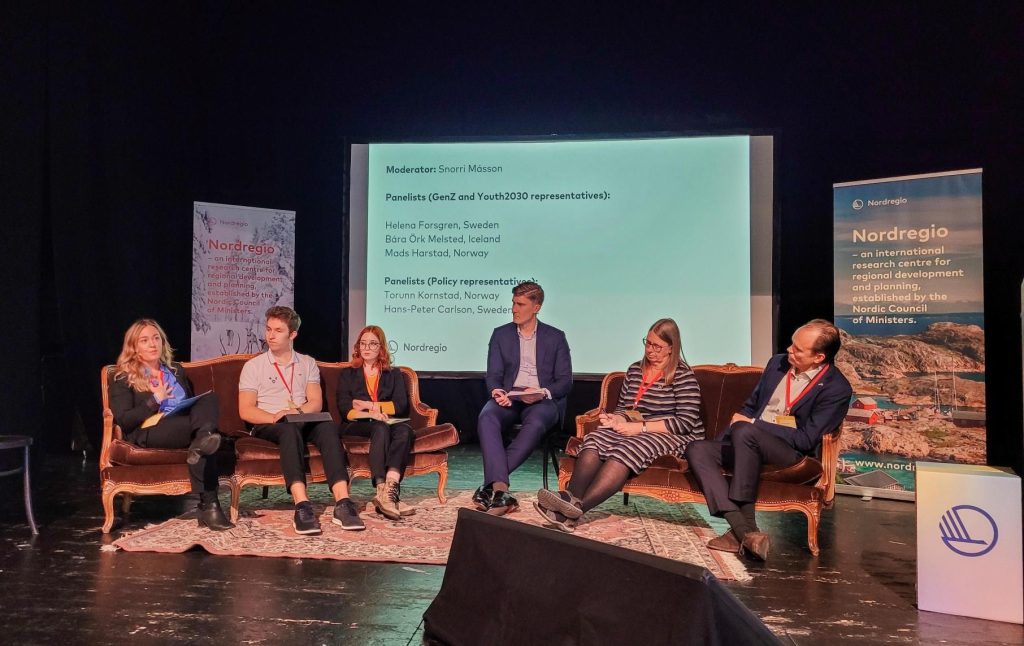Last week Nordregio brought together not only professionals and policymakers but also youth from across the Nordics to blustery Reykjavik for our annual conference.
With the theme of empowering young people to stay and thrive in the Nordic Region, this year’s Nordregio Forum explored innovative approaches, shared research, and discussed the importance of breaking down barriers between youth and those in power.
Minister Sigurður Ingi Jóhannsson of Iceland noted in his opening remarks “It is important that young people are involved and that we have open channels to encourage their participation in policymaking.”
Everyone wants to be Frodo or Bilbo
“If we love our shires, why do Nordic youth move away from rural areas?” Eva Mærsk, a researcher at the University of Southern Denmark, posed this question in her keynote, setting the tone for the event. She emphasized the need to focus on those who choose to stay in rural areas and encouraged making them the center of campaigns aimed at retaining the region’s youth.
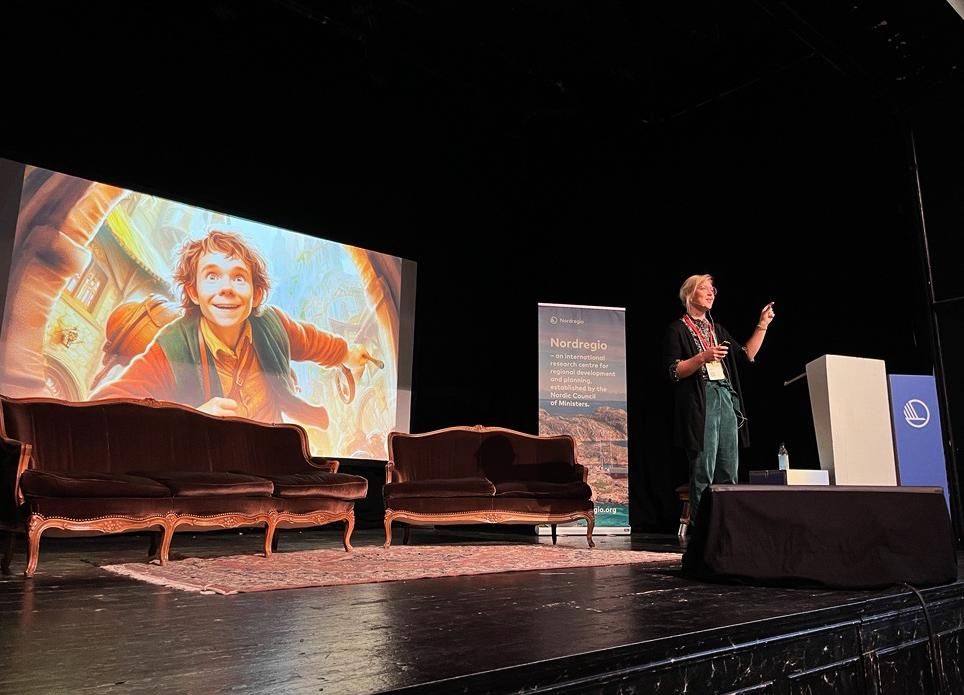
Tonje Bjerkan, Managing Director of Nordfjordakademiet, showed how this can be done in practice, outlining Nordfjord’s innovative “hunt for superpowers” campaign. Nordfjordakademiet serves as a hub connecting businesses, educational institutions, and students. The goal is for youth to see the opportunities in their region and to choose to stay or come back after further studies. Their message to youth is clear: “If you dare, we will bet on you!”
Our own Mari Wøien Meijer asked, why is the brave choice to move back home? She presented the recommendations from our Nordic Youth Panel, urging municipalities to be innovative and brave in how they engage youth. She underscored that with aging populations and a trend of youth migration from rural areas, youth’s insights and recommendations are vital for ensuring thriving, inclusive, and sustainable Nordic rural regions.
What does Gen Z need to stay in the Nordics?
A panel debate explored the specific needs of Generation Z, including developing education and labor market policies tailored to this new generation.
Nordic Youth Panel members Bára Örk Melsted and Annie Linsemark explained that policymakers “often listen to us but we aren’t part of decision-making”. The policymakers on the panel agreed that they need to listen more but also act on the solutions presented by youth.
The panelists presented several solutions, including flexible educational options, involvement of local youth councils, and affordable, diverse housing models. Housing, in particular, was highlighted as a crucial aspect of retaining young people in rural areas.
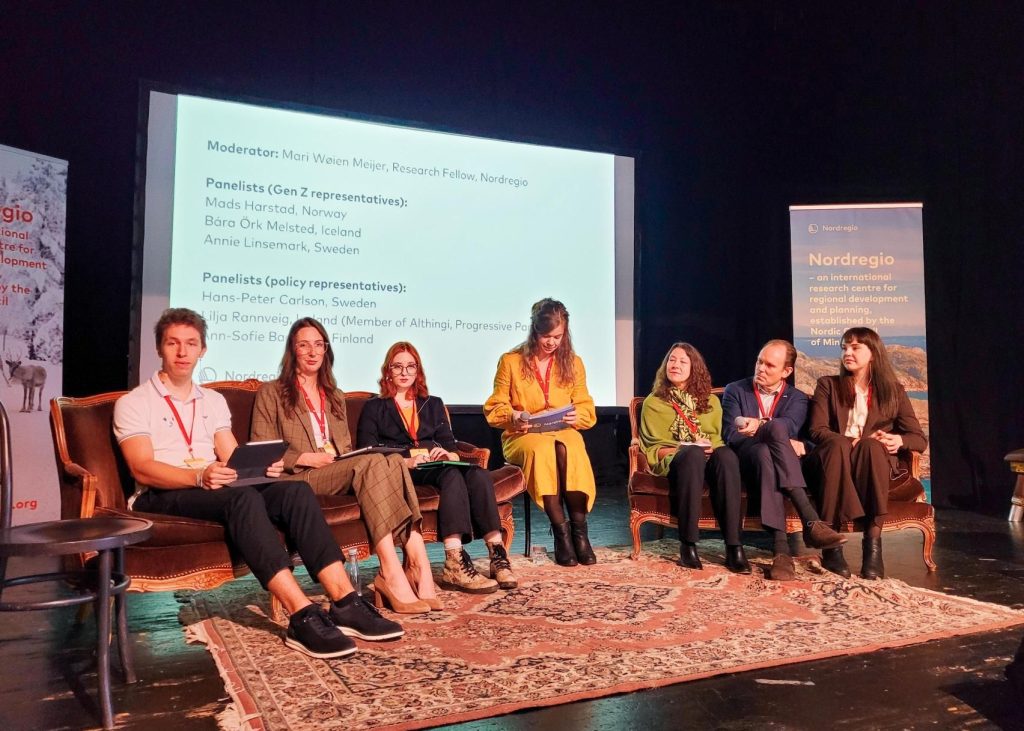
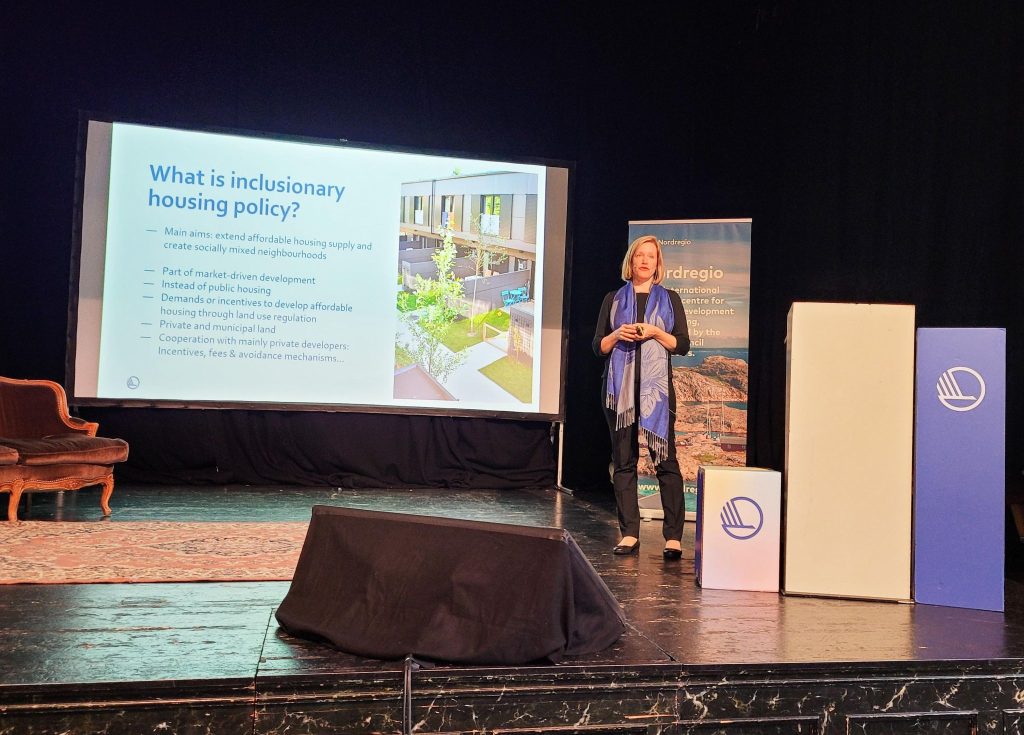
Nordregio’s Anna Granath Hansson discussed research insights regarding young people’s access to affordable housing. She emphasized the importance of housing options that accommodate the diverse phases of life that young individuals go through. “It is really important to have housing options and to be mobile when you are young; this is when you make big choices about where to study, live, and start a family,” said Anna.
The green transition and youth
How can youth be partners in the green transition? Our afternoon session at Nordregio Forum explored this through the lens of research and interactive discussions with youth. Carlos Tapia presented our recent survey that shows young people in the Nordics tend to be more pessimistic about the fairness of climate policies than older generations.
Meanwhile, Leneisja Jungsberg shared the insights of young people in Greenland and the Nordic Arctic, focusing on their experiences with climate change and permafrost degradation. Their voices are crucial in preparing for the green transition and noted that “a mixture of hope and dissolution coexist.”
Ágúst Bogason discussed the social aspects of sustainable tourism and their implications for youth in the Nordics. Tourism’s economic benefits were acknowledged, but the social effects, both positive and negative, were highlighted.
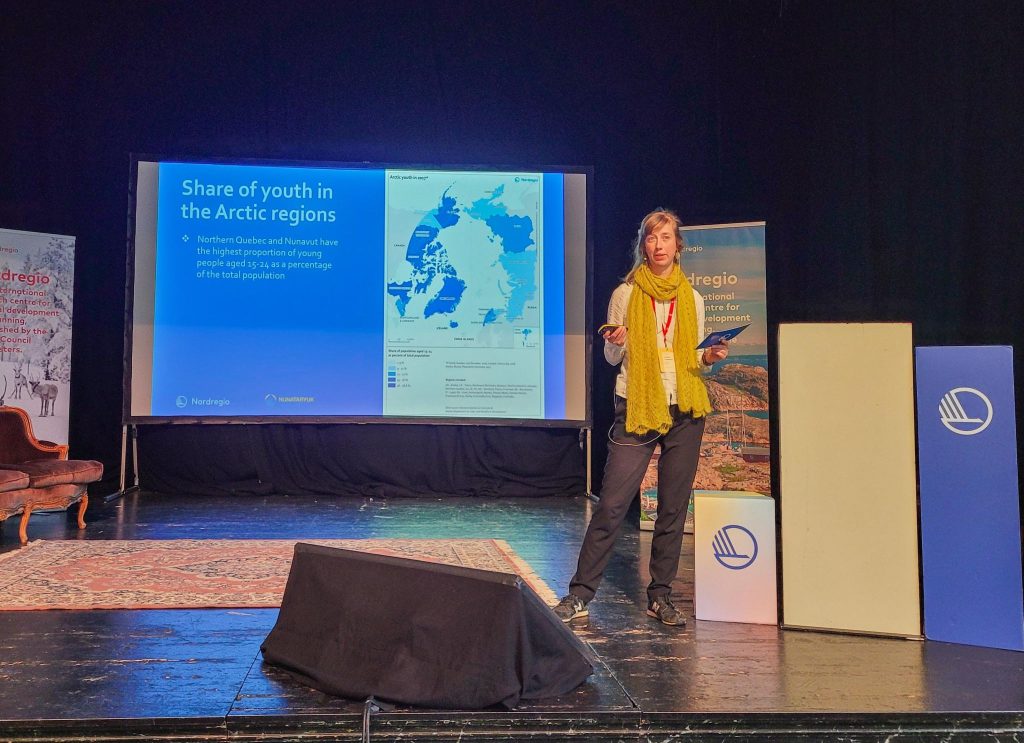
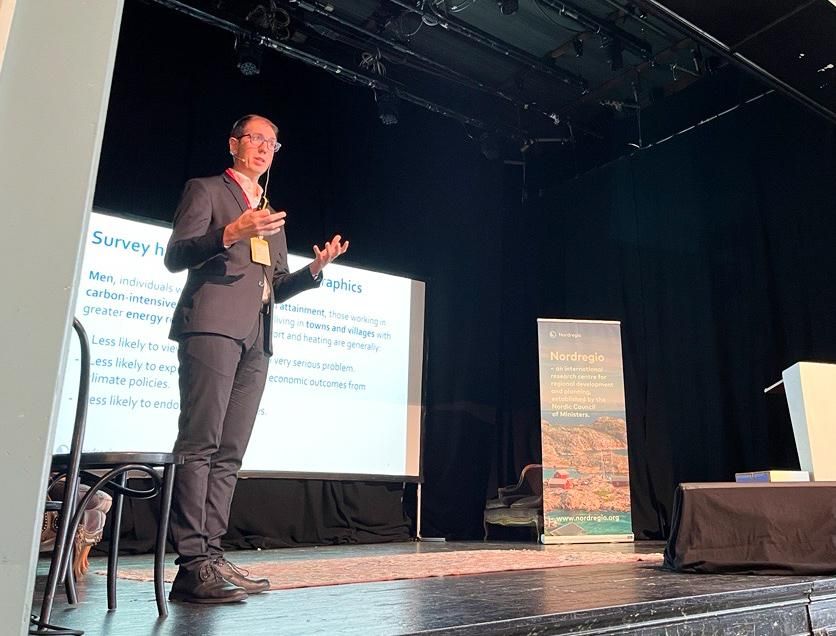
A final panel discussion stressed the importance of active citizenship and breaking down barriers between youth and people in power. The need to shift from future planning to immediate action was emphasized, particularly in the context of the green transition.
“We need to shift from the future to now,” said Helena Forsgren from Youth 2030. Indeed, we have no time to waste if we are to tackle the green transition and we must ensure that youth are part of the journey.
